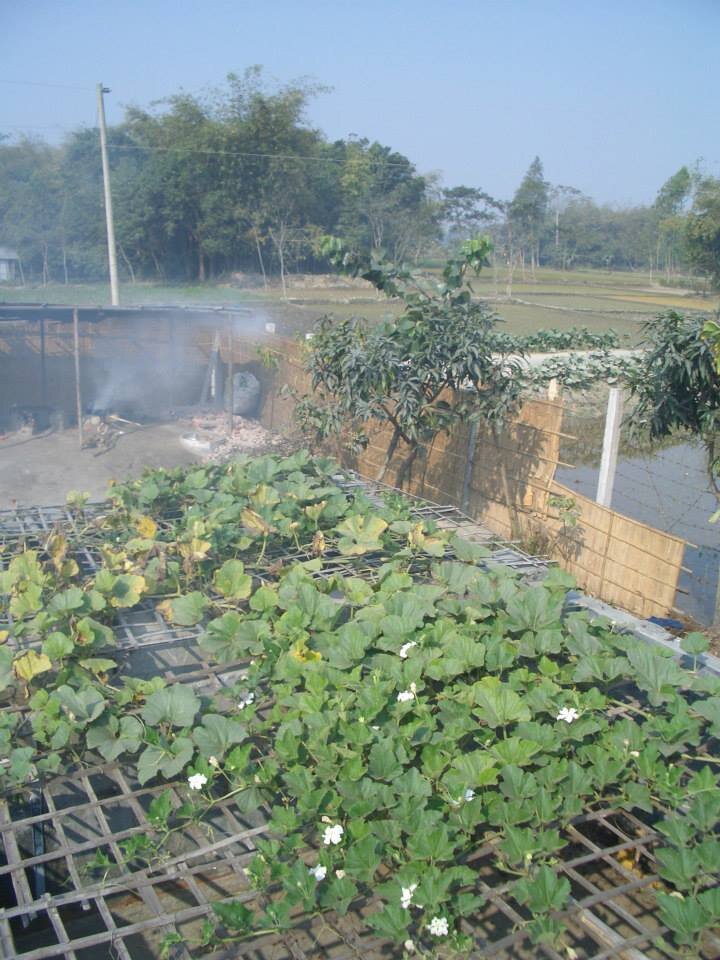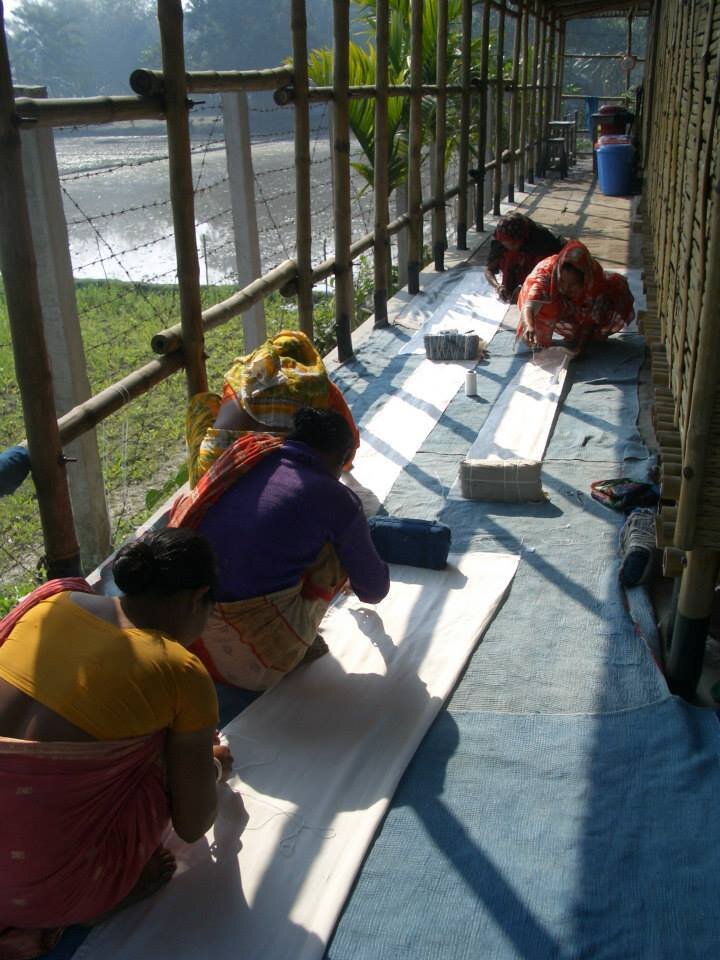Nijera Cottage and Village Industries
Our indigo shibori collection is made by a social enterprise in the rural north of Bangladesh called Nijera Cottage and Village Industries. Nijera was set up with support from the NGO Care International, and its aim is to contribute to a sustainable rural economy by providing jobs that make use of local skills and resources. One of these resources is indigo - a natural blue dye that is extracted from the indigofera tinctoria plant.
Bangladesh has a long history of producing indigo and is known to be one of the best sources of the dye in the world. The quality of Bengal indigo once made the region rich, but during the colonial period, farmers were forced to labour under exploitative conditions and indigo became a source of oppression rather than wealth. Due to this history and the emergence of synthetic indigo, the production of natural indigo largely died out in the 20th century. Nijera’s aim is to revive it and to make sure that the benefits of its production go to the cultivators themselves.
The producer group consists of farmers, dyers and artisans trained in the arts of shibori and kantha. Many of the farmers do not own their own land, but as indigo is a hardy crop and does not require any inputs, the farmers grow it along the unused sides of roads. After the plants are harvested, the leaves are fermented in a vat. This releases a compound, indican, which is dried and turned into powder. This is then mixed with water, creating a dye bath, and when fabric is soaked in it and then re-exposed to the air, it turns blue.
The artisans at Nijera use this locally produced indigo to dye fabric (mostly cotton khadi) using a resist technique called shibori, and then sew the fabric into cushions and blankets, adding texture to them with a traditional Bengali stitching technique called kantha. The whole process, from the cultivation of the plants to the stitching of the final product, is carried out locally by members of Nijera. By keeping all stages of production in the local area, a diversity of jobs are created, which supports a functioning local economy. As the work involved is labour intensive and the crops do not need any chemical inputs, poorer members of the community benefit. And as indigofera cultivation has a positive impact on the soil, the local environment also benefits. Nijera’s operations therefore have a genuinely positive impact on both people and the planet.
Read about our visit to Nijera here.
Shop the indigo shibori collection here.



